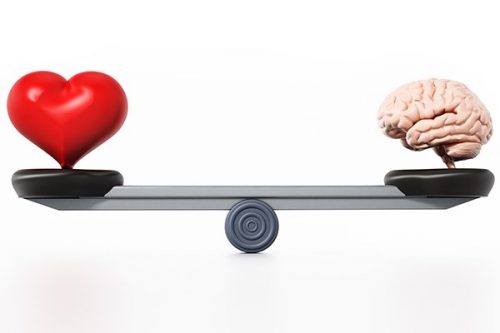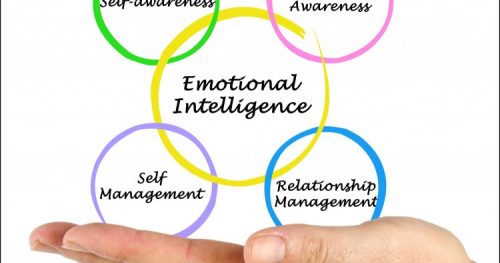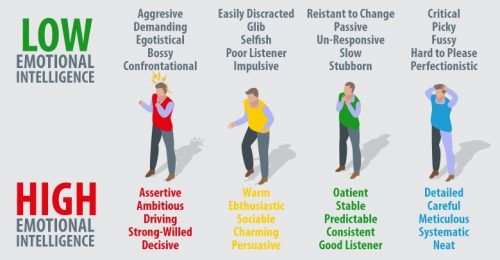
Source: emra.org
Emotional intelligence or EQ is not something that someone cannot possess. All of us are instilled with some amount of it. You may have an inherently high EQ, while your friend may require more improvement through training or further education. Apparently, therapy does benefit others who want to strengthen their emotional intelligence.
How Is EQ Measured?
Emotional intelligence may be measured through different tests. As with IQ or Intelligence Quotient, the usual grade for EQ is also 100. This means that if you have a high score, you are more emotionally intelligent. A person with a grade of 110 and higher is basically said to have a high emotional quotient score.
Having a below-average score for EQ doesn’t necessarily conclude that the individual has no emotions or that he is unkind. The individual can increase his score through education and practice.
Therapy may be beneficial when an individual wants to better comprehend and improve emotional intelligence. Through therapy, he can improve his capacity to acknowledge and decipher his own feelings. As he gradually grows to become more aware of his emotions, he can train how to react to those emotions constructively. For instance, instead of having outbursts when he is furious, an individual can pinpoint his disappointment as it increases and finds ways to pacify it before speaking.
Self-aware plays a key role in EQ, although building compassion for other people is also significant. Several therapists teach their clients to be more aware of the feelings of other people. In therapy, a client may develop social skills like making adjustments to their body language or judging people’s feelings through facial expressions. Some therapists also assist a client in practicing small talk in a judgment-free zone. Training for emotional intelligence can be particularly beneficial to individuals with Asperger’s Syndrome.

Source: mei.edu
Therapy, specifical psychotherapy, tackles each part using Goleman’s mixed Emotional Quotient model. Below is a list of ways that therapy enhances emotional intelligence and other important skills.
Therapeutic connections enlighten ways of fixing emotional distress and conflict, permitting a person to build more lasting connections. As with other relationships, therapeutic connections need the effort to maintain and enhance. Misunderstandings and conflicts certainly occur in psychotherapy, and every conflict is a perfect opportunity to enhance your skills in conflict resolution.
People learn ways on asking for their personal needs to be accomplished and may uncover the audacity that they require to express their frustration when their therapist is not capable of doing so. This process of learning helps develop the energy and resilience needed to enhance their connections out of the office or workplace setting. This subsequently enhances emotional intelligence.
Therapy helps increase self-awareness of your emotions and polishes your empathy skills. The more a person improves his self-awareness through his therapy sessions, the more he is able to learn to recognize the complexities of others as well. Letting go of hatred toward others leads to healing. You realize that you are capable of forgiving others in spite of their flaws. In the process, you are also able to increase your ability to build connections with others regardless of their differences.
Dealing with emotional matters by talking aloud with someone – or our therapist – allows for instantaneous responses to your cognition and illuminates your weaknesses and strengths. Often, others belittle the power of having to share your most personal emotions and viewpoints with someone. Therapy can give a person an influential experience emotionally, clarifying the ways by which you see yourself and others. When you go through tests and trials in the course of therapy, there’s an available person that can possibly provide you with feedback. This connection you have with your therapist clarifies the things that you do best and pinpoints areas that need more growth.

Source: trainerslibrary.org
Going through therapy may help one learn self-regulation techniques that enhance one’s emotional control. This is achieved in several ways. Fundamentally, a therapist can teach you techniques such as muscle relaxation or breathing exercises to build your ability to manage tough feelings. The therapist also assists you in finding things that can be helpful in tackling challenging emotions. In a lot of ways, therapy gives you a very inspiring opportunity to look for and learn more effective coping strategies.
Tackling your emotional distress improves symptoms and produces energy that you can utilize to motivate you to accomplish your goals. As you deepen your working connection with your therapist, most of the issues that have pushed you to go into therapy improve or get better. Emotional energy increases are released from those negative or counter-productive cycles. The change of your distress into something that’s become easier to manage improves your chances of feeling more relevant. You start to feel happier and more passionate. Subsequently, the inspiration that you need to accomplish your goals is rekindled, and you get all the energy that you require to live a successful and content life.
